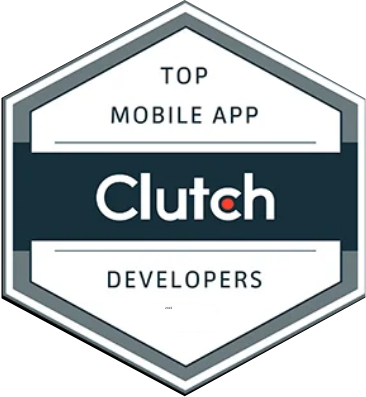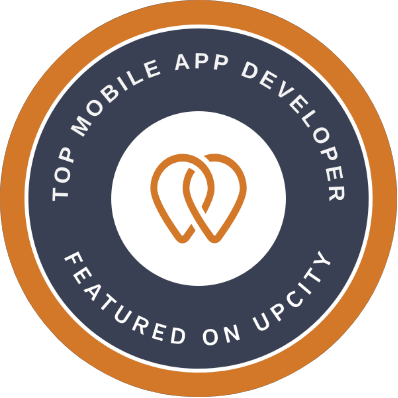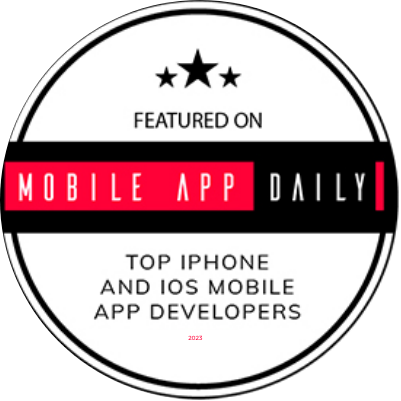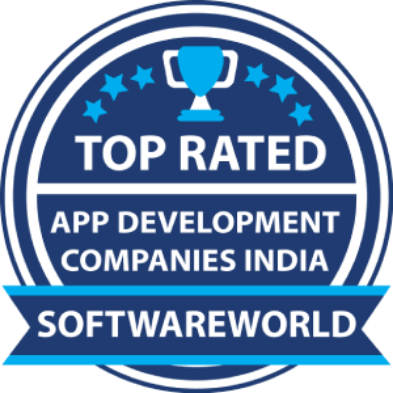The impact of machines and computers on various industries is a hot topic, and with the continuous advancement of industries at a rapid pace, itis making these industries identify more efficient ways to perform various tasks. Artificial Intelligence is Affecting the Recruitment Industry in future.
This advancement in technology will soon jump to the next level, with machines being able to perform complex tasks faster and more efficiently than humans. With the integration of Artificial Intelligence, computers will become even smarter to execute more complex tasks.
In simple words, recruitment can be understood as a process of searching and hiring the eligible candidate for the job. Over the years, companies have been facing many issues during the recruitment process, but now with the integration of AI in the recruitment industries, companies can now quickly and easily hire candidates. For example, when a company posts information about new job vacancies, their inbox gets flooded with job seeker’s applications. It becomes nearly impossible for companies to respond to each applicant, and in this scenario, Artificial Intelligence becomes a solution that would be hugely valuable for companies.
Effect of AI on the HR Department of Recruitment Industries
There’s a term for when you provide your resume to a recruitment agency, and then wait weeks and weeks without hearing anything back. It’s referred to as the candidate black hole, and it is this dreaded reality that many candidates are facing or have faced in the past.
On the recruiter’s point of view, they also deserve some empathy. In the vibrant ultra-aggressive job marketplace, it is no longer uncommon for recruiters to have to sort through 100s or even 1000s of applicants, for a single job role once a company posts that a new position is live.
This is where artificial intelligence holds sufficient value in this industry, as it is a viable option aimed at removing this frequent pain point for recruiters and candidates alike. AI’s use cases within the recruitment industry are abundant, and right here, we’ll be highlighting the awesome features they provide to the recruitment process:
HR Chatbots Enhances the Candidate Experience
The integration of chatbots for HR has proven to be worthwhile by improving the overall candidate experience, as well as eliminating the administration time and manual tasks for recruiters. Beginning from AOL’s SmarterChild and Microsoft’s Clippy, Artificial Intelligence has come a long way. The modern-day smarter bots, i.e. Siri and Alexa have proven themselves to be better for consumers, by providing them with real-time answers to their simple, complex as well as sarcastically asked questions. In the field of recruitment, the technology has advanced to a level that now recruiters can be fully dependent on chatbots for interaction with job-seekers and candidates with real-time updates. This enhances the experience for both recruiters and candidates.
With chatbots, candidates get real-time responses for their queries, and the recruiters can focus on other important recruitment aspects of hiring candidates. Chatbots are proven to be good for HR; in many ways some of which are
Chatbots can ask FAQs from job-seeking candidates.
Chatbots can gather candidate’s information.
Chatbots can schedule an interview for candidates.
Chatbots can ask screening questions.
Identification of Eligible Candidate
Since AI has been having a major impact on various industries, the recruitment industry was also likely to be affected in a positive aspect. The fact can’t be ignored that there are already many candidates hiring software in the market, but the potential that AI holds for recruitment is still far from fulfilled. Very soon, AI will change the hiring process and the process of identifying the correct candidates by offering automated workflows to HR. Choosing the correct and eligible candidate for the job is not yet an easy task for AI, as it is not possible to run a stack of resumes on a machine and guarantee an output of eligible job-seekers.
Currently, we still need a human to validate that the right resumes have been selected. However, it is expected soon that AI will take over this process with minimal intervention from humans. This will be done by identifying the correct resume with the help of some specific keywords and phrases. Due to this, recruiters will be able to easily sort through the applicants, and identify the candidates who are really worth taking interviews.
Although the potential of time-saving from AI is high, there are some things that will still require human efforts. For example, having a face-to-face meeting with the candidate to decide whether they can meet the conditions to be a part of your organization.
Machine Learning Gives a Professional Touch to Recruitment
The importance of data in each sector is known to everyone, and it is no different for recruitment. Good data gives a smoother and more accurate experience to companies when they are looking to finding job seekers, and want to match them with the most suitable position in the company. Very soon, the combination of AI and Ml will take the recruitment process to the next level by making the recruitment process fully automated. AI uses various algorithms to sort out the most qualified and eligible candidates for specific positions. In the coming years, AI will start to make even more accurate matchmaking through improved algorithms.
AI is Improving Online Applications
AI is helping companies in many aspects, and online application management is one of these ways. Companies use keywords, word flows, and other important points that can be easily analyzed by AI to search the database for sorting eligible candidates. Moreover, AI is enabling recruiters to prioritize thousands of resumes according to the candidate’s eligibility. There is no doubt that in the future, AI will be helping recruiters to find the most accurate job seekers using predictive analytics.
Automated Response
In order to maintain a good company reputation, it is important for the company to keep the candidates up-to-date with their application status. However, writing a message for each individual is quite a time consuming and practically near to impossible for companies that are inundated with applicants. AI allows companies to create a template message which will be automatically sent to the right candidates via the hiring software. One of the examples is, notifying candidates when they are no longer eligible or under consideration for a job. Moreover, interview scheduling or offer letter templates can also be prepared in the hiring software.
Natural Language Processing(NLP)
From the last few decades, various natural language processing methods have been used by companies, but there are many more things that can be done with the help of NLP. One of the most common and easy examples of natural language processing in the recruitment industry is the use of the Boolean algorithm for identifying eligible resumes. Some other things which can be done with the help of natural language processing are resume classification, deep extraction of knowledge, ranking, and some automation in the recruitment process.
AI Eliminates Unconscious Bias
Unconscious bias and social stereotypes can be serious harm to hiring the besting suiting person for a role within a company. As much as it is known that bias should not occur, it is unfortunately difficult to eradicate. The Equal Employment Possibility Commission (EEOC) strives to stop bias (each conscious and unconscious) in recruiting operations, however, that’s less complicated stated than executed, particularly as long as people who are not totally open-minded are in charge of these decisions.
AI, however, solves this issue completely, as it makes subconscious bias anon-issue through the following ways:
Sourcing and screening candidates based totally on quantitative data factors:
Bots now use algorithms to predict and select befitting candidates to unfilled process positions. There’s no emotion connected to those choices, neither is there any assumption, bias, prejudice or any other different subjectivity at play.
Ignoring candidate demographic information:
AI can be programmed to overlook data that might in any other case open a company up to potential bias or a discrimination-associated suit. Identity-primarily based records include such things as race, coloration, gender, country of origin, faith, disability, and age. AI can even be programmed to disregard information that could point to a person’s socioeconomic repute, inclusive of names, faculties attended and cities/zip codes lived in.
The Positive Effect of AI on the Recruitment Industry
Artificial Intelligence has already set its foot in the recruitment industry. Although it is in its initial stages for choosing the correct and eligible candidate, the ongoing development of AI in the recruitment industry shows that there are many more capabilities that are still under the deployment process. Still, there are some major benefits that AI holds for the recruitment industry:
AI tools can easily analyze the database for identifying the correct candidate from a list of available CVs, with the help of specific keywords. This increases the opportunities for the candidates to find a correctly suited job for them.
AI increases automation by reducing human input and helps HR teams by automating the replying to the FAQs of candidates. With the help of Machine Learning, AI can also help to suggesting the eligible candidates that recruiters may miss.
AI enhances the response time and communication by automatically sending interview scheduling or confirmation emails and texts to candidates, allowing recruiters more time to focus on other important tasks.
Limits of AI That Recruiters Should Know
Although AI can easily monitor data and perform repetitive tasks to help recruiters, it cannot take their place. Instead of replacing jobs in the recruitment sector, AI has been improving and automating the hiring process and helping recruiters to do other important hiring tasks that require human decision-making. Although being proven to be beneficial for the recruitment industry, AI also has some limitations.
AI may be fast and accurate but it is not error-free. If any error is made during machine learning, it will become difficult for the recruiter to spot and correct the error before it is too late.
Undoubtedly data is used by Artificial Intelligence to identify patterns, but it does not define the root causes behind the detected hiring patterns.
AI follows a defined set of orders. AI works best when designed to accomplish narrow tasks. For example, AI is a great tool for harnessing large amounts of data, but it will not be able to see the bigger picture that affects the data. For instance, if more women are entering construction management, biases previously built into the algorithm could still be in effect if this is not amended, resulting in mostly male candidates being suggested by the system.
AI is the Future of Recruitment
The integration wave of Artificial Intelligence in the recruitment industry is not just a trend, it is clear that it is here to stay. Apart from eliminating most of the manual recruitment work that is done by recruiters, AI also enhances the candidate’s experience for finding a better-suited job for themselves.

Pratha Sharma, a Versatile Content Writer at Nimble AppGenie, possesses over 3 + years of experience. Her driving force lies in bridging the knowledge gap with compelling content. She has the expertise to present complex content in simple and understandable language which makes her perfect for this post.
Table of Contents












No Comments
Comments are closed.